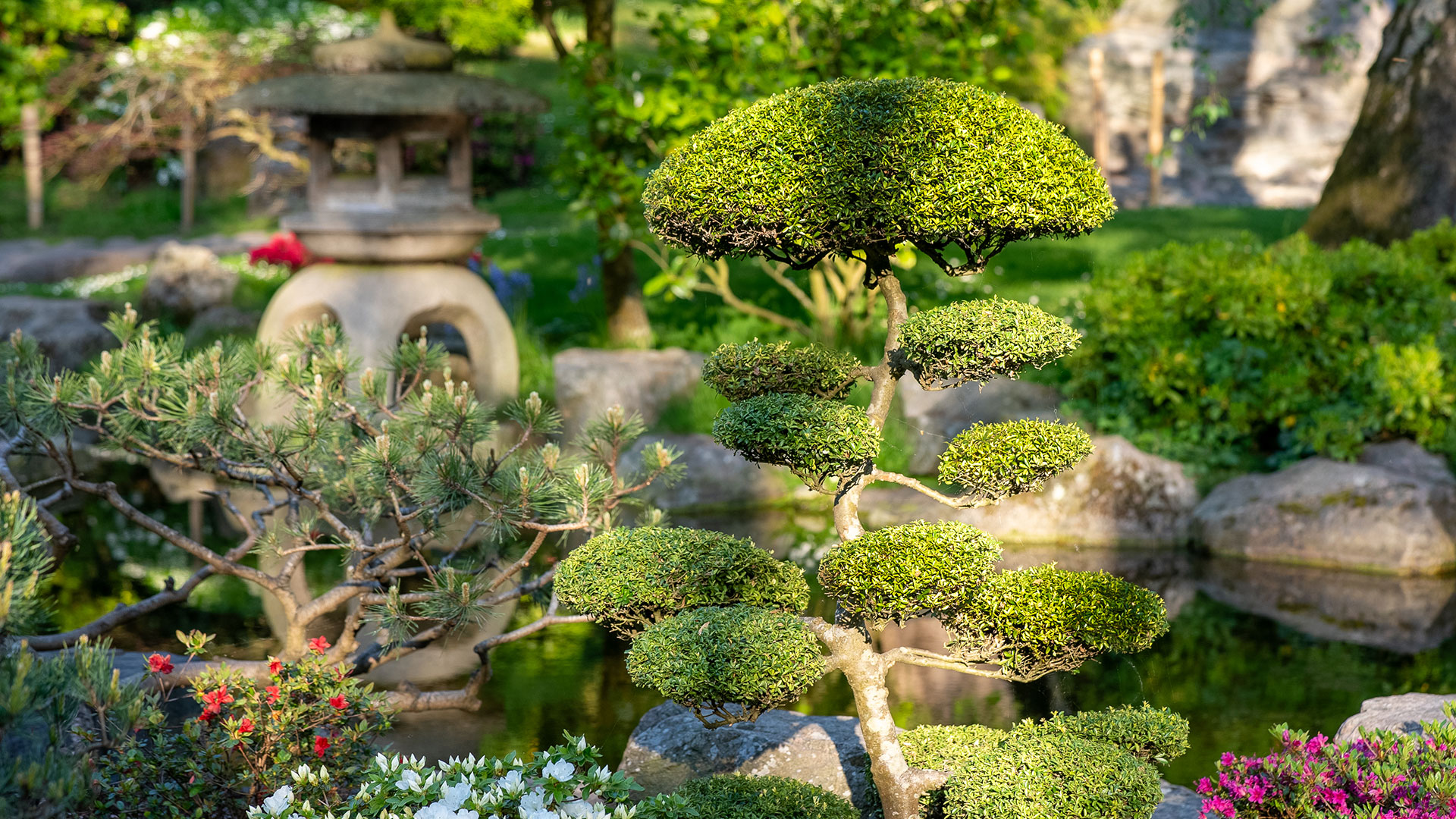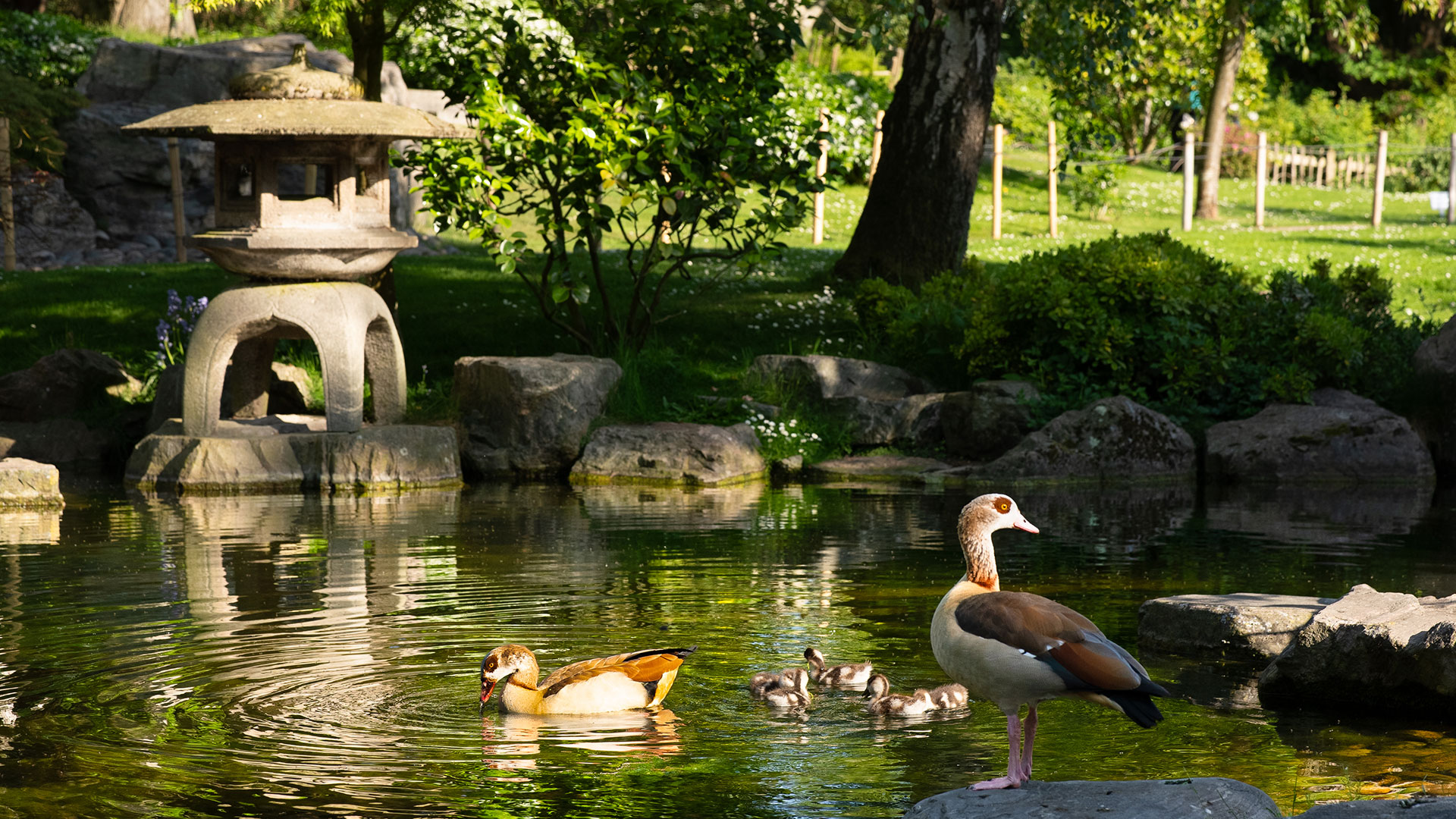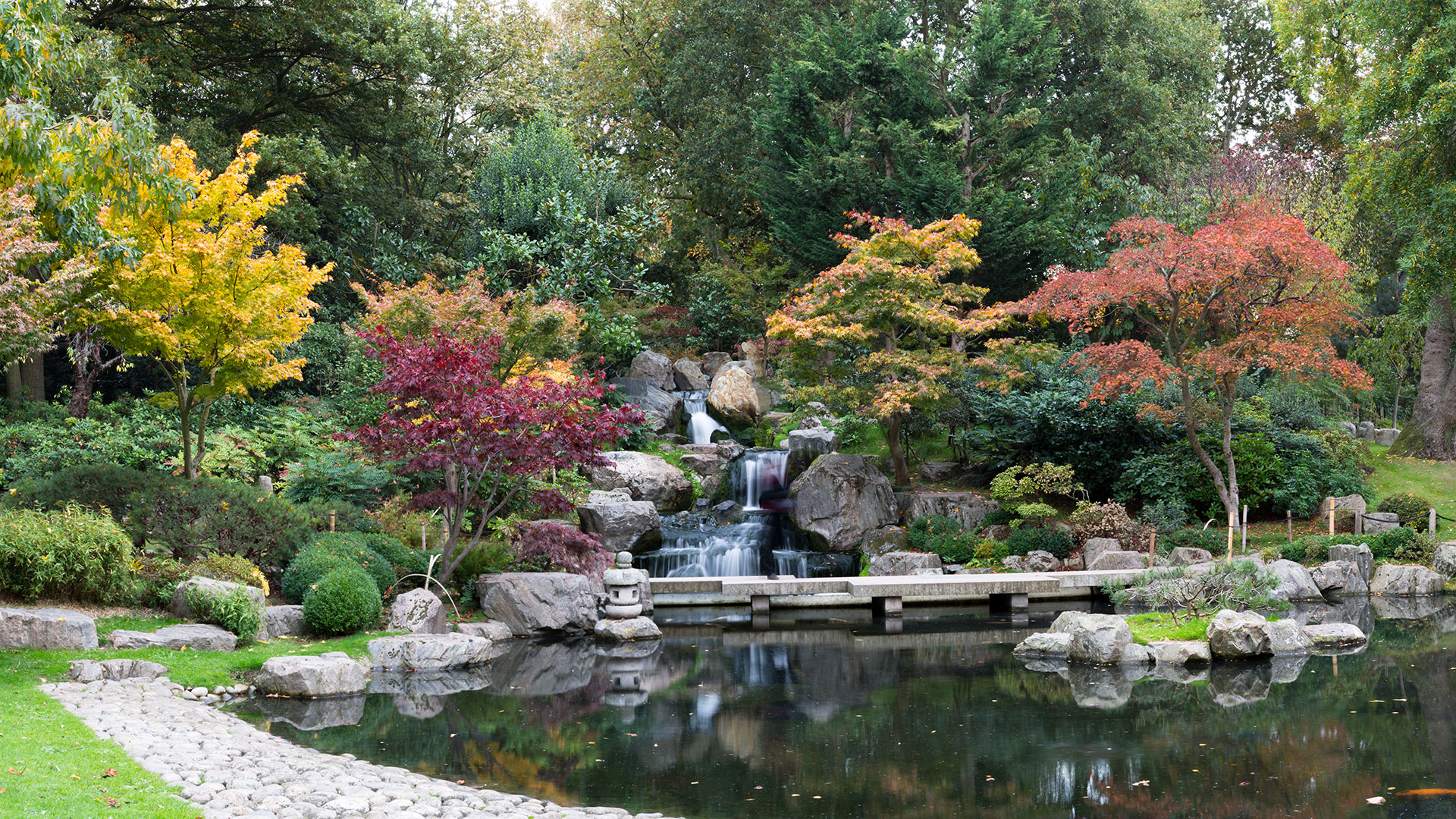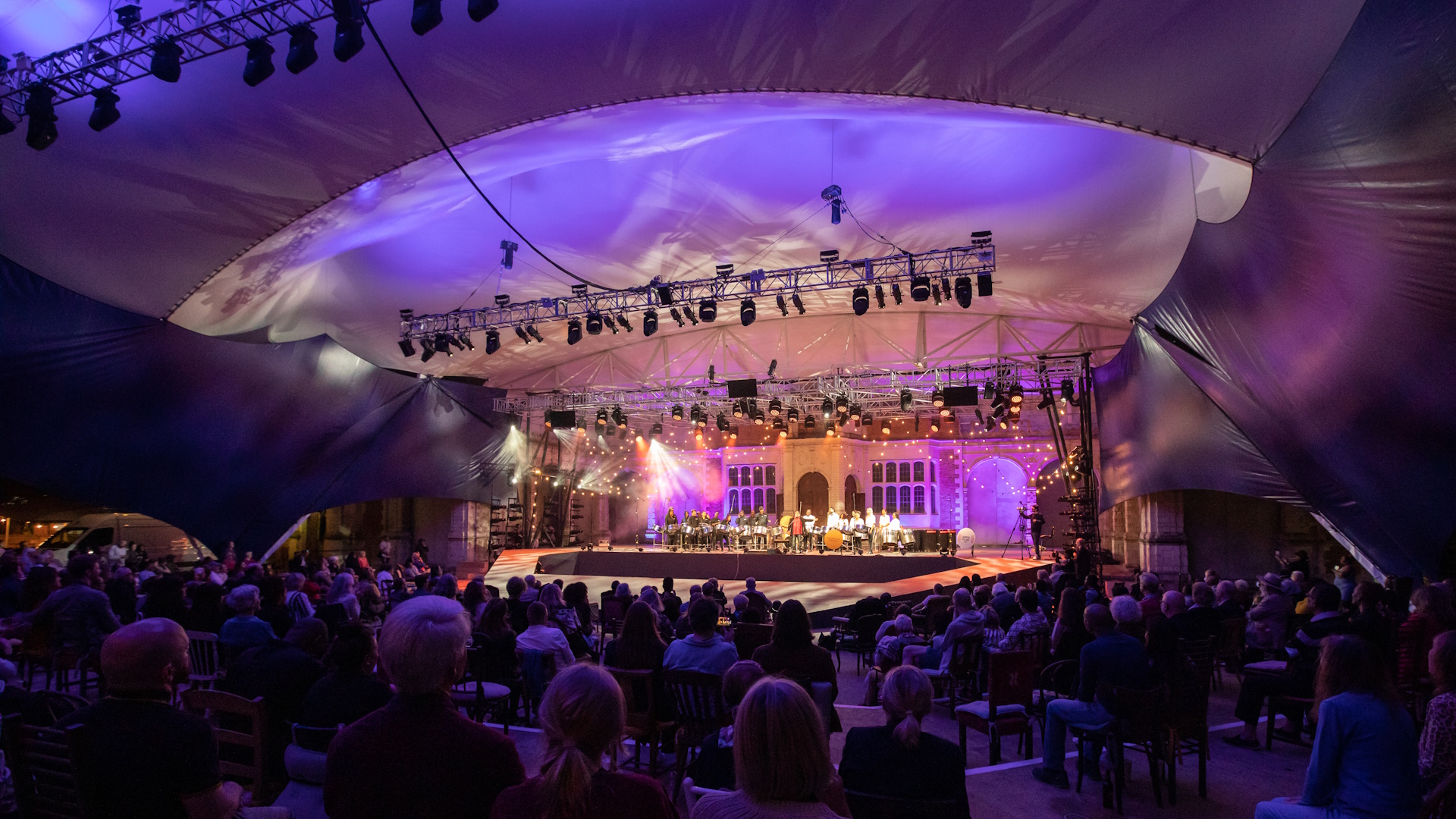Where is the Kyoto Garden?
You can find this picturesque Japanese garden in London located in the heart of Holland Park. Getting to Holland Park is easy, it’s only a three-minute walk from Holland Park Tube station on the Central Line, or six minutes from High Street Kensington on the Circle and District lines. You’ll also find plenty of bus routes stopping nearby. In this guide, I explore Kyoto Garden's history and highlights, with tips for making the most of your visit.
It is free to visit and open daily, Holland Park opening times are from 7.30am until 30 minutes before dusk. Visitors can explore its gardens and woodland areas, however, some activities and events such as performances at Opera Holland Park may require paid tickets.Is Holland Park free to visit?

Is Kyoto botanical garden worth visiting?
After a recent trip to Japan, it was a nice surprise to find myself in a tranquil Japanese garden in London while exploring Kensington. This hidden gem with a cascading waterfall, koi-filled pond and vibrant flora is a must-visit for nature lovers, photographers, and anyone seeking a moment of calm.
How much does it cost to go to Kyoto Garden?
Kyoto Garden in Holland Park is free to enjoy and full of surprises. Stroll past the peaceful koi pond and waterfall and you might just meet one of the park’s resident peacocks showing off their colourful feathers.
What is the history of Kyoto Garden in London?

Opened on 17 September 1991 by His Majesty King Charles III and His Imperial Highness The Crown Prince of Japan, the Kyoto Garden was created to mark the 1992 Japan Festival in London, as part of a collaborative project between the Royal Borough of Kensington and Chelsea and the Kyoto Chamber of Commerce. It was a gift from the city of Kyoto to celebrate the enduring friendship between Japan and the United Kingdom.
Designed by renowned Japanese garden designer Shoji Nakahara and his team in the traditional Japanese style, the garden embodies principles of harmony, balance, and natural beauty. Reflecting the artistry and tranquillity of Japanese landscaping.
The Kyoto Garden forms part of the wider Holland Park estate which spans 54 acres and was once the grounds of Cope Castle, a Jacobean mansion built in the early 17th century by Sir Walter Cope, Chancellor of the Exchequer under King James I.
Renamed Holland House in 1768 after being inherited by Isabel Cope (Lady Rich), wife of Henry Rich the 1st Earl of Holland, the mansion was heavily damaged during WWII. Today, one wing serves as a youth hostel, and the preserved front terrace hosts open-air theatre and classical concerts in the summer.
What are the highlights of the Kyoto Garden?

Waterfall and pond: At the heart of the garden lies a serene, tiered waterfall that ebbs and flows into a tranquil pond, home to colourful koi fish gliding beneath the surface. The soothing sound of the water and light through the trees creates a truly meditative atmosphere.
Wildlife encounters: Keep a lookout for the park’s resident peacocks, often seen strutting through the garden or perched proudly on stone lanterns. You might also spot herons, squirrels, and even woodpeckers among the trees in this peaceful retreat.
Japanese design elements: The garden is rich with traditional Japanese features such as stone lanterns, maple trees, cherry blossoms, and azaleas - all contributing to its authentic and harmonious aesthetic. Every detail is thoughtfully placed to reflect the balance and beauty of nature.
Photography tips: Visit in spring (late March to early April) to capture the cherry blossoms in bloom, or return in autumn when the maples shimmer in shades of red and gold. Early mornings or late afternoons offer the best light and the fewest crowds for stunning shots.
How long does it take to walk around Kyoto Garden?
It takes about 10 minutes to walk around Kyoto Garden in Holland Park. The garden is compact, with a single loop path around the koi pond and waterfall. While most paths are flat and accessible, a few areas may be uneven, so comfortable footwear is recommended.
How long to spend at Kyoto Garden in London?

You can comfortably spend 15 to 30 minutes at the Kyoto Garden in Holland Park, depending on your pace and interests. For a peaceful experience, aim to visit the Kyoto Garden early in the morning when the park is quiet and serene.
Be mindful of the garden’s tranquil atmosphere and keep noise to a minimum, avoid feeding the koi, and respect the local wildlife.
What to do in Holland Park, London?

After seeing the garden and the nearby Fukushima Garden, take time to enjoy the rest of Holland Park - explore The Orangery and Ice House Gallery, admire the Dutch Garden or visit the Ecology Centre.
If you’re visiting during the warmer months, Holland Park is a perfect place for a picnic and is a lovely setting for lunch and dinner. Tempt your taste buds with Mediterranean-style cuisine at the stunning Belvedere Restaurant or enjoy outdoor cafe vibes at Daisy Green, both located within the park. For a memorable evening, enjoy an enchanting open-air performance of live opera under the stars at Opera Holland Park.
While exploring the area, don't miss your chance to discover nearby attractions such as Kensington Palace and the Design Museum.
Kyoto Garden is more than a picturesque retreat, it's a cultural bridge between London and Japan, offering a calming space to reflect, relax, and reconnect with nature. Whether you're a local or a visitor, it’s a place that invites you to slow down and soak up its vibrant foliage and quiet beauty.
Discover more parks and outdoor spaces in London.

